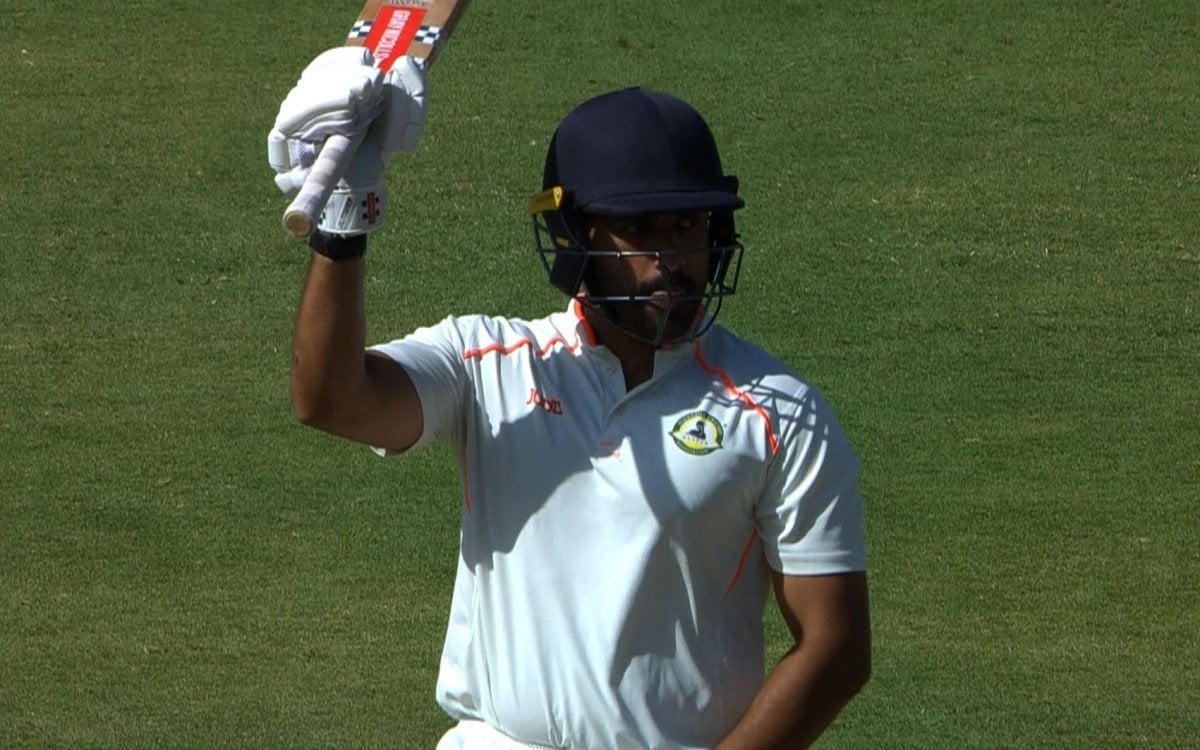The Decision Review System: Australia, led by the indomitable Pat Cummins, clinched the series after a 72-run victory over Pakistan in the second Test sealing the series on Friday. However, the unexpected narrative took an intriguing turn when Pakistan’s team director, Mohammad Hafeez, declared his team the superior force in the Boxing Day Test.Amidst Hafeez’s critique of officiating and technology, Cummins, the Australian skipper, wore a wry smile, acknowledging the sentiment but emphasising the essence of the sport. “Ahhhh. Cool. They played well. I am glad we got the win. It is the team that wins at the end,” said Cummins in the post-match press conference.
The Decision Review System (DRS) has become a focal point, a double-edged sword that has sparked many spirited debates. It did the same in this Test as a few decisions came under the spotlight.
Cummins, however, saw the game’s equilibrium in the imperfect science of decision-making. “It all evens itself out,” he asserted, recognising the nuances of a game where fortunes sway like a pendulum.
“We don’t totally agree with (that assessment). It is not a perfect science, the DRS system or umpiring or anything. Some go your way. Some don’t,” Cummins said.
“There were a few umpire calls for both teams. It is a game. I think it all evens itself out. I feel like this game was 50-50. There was nothing that worried us too much.”
Hafeez, while lamenting umpiring decisions, acknowledged the significance of dropped catches, pivotal moments where fortunes slipped through Pakistan’s grasp.
David Warner and Mitch Marsh capitalised on such opportunities, turning spilt chances into a combined 112 runs and reinforcing Cummins’ belief that in the grand tapestry of a match, balance prevails.
Talking about the crucial wicket of Pakistan captain Shan Masood, who scored 61 off 71 balls and had shared a good partnership with Babar Azam (41), Cummins said he tried the short-pitched delivery to get his counterpart.
“He was playing pretty well around the stumps, so I thought, ‘Let’s try a few bouncers. Set the fields. See if he wants to take it on,” Cummins said.
About the controversial dismissal of Mohammed Rizwan for 35, which the third umpire ruled in favour of Australia judging that the ball kissed the wristband on its way to keeper Alex Carey.
“That one just kind of shot through. I heard something (which I thought) was glove, or thereabouts, so I thought it was worth a review. It was clearly off the glove strap.”
Cummins emerged as the protagonist in this cricketing drama. His ten-wicket haul secured victory and etched his name in history with a milestone 250th Test wicket. The MCG roared as he surpassed Richie Benaud on Australia’s all-time wicket-takers list, a testament to his prowess with the ball.
In the post-match reflections, Cummins spoke of personal satisfaction, finding rhythm, and leading a team that had enjoyed a stellar year. From the stunning triumph in the ODI World Cup to a series victory at home, Australia basked in the glory of success.
“Personally, I think (I’m) really happy for a few reasons. Probably the one main reason is it is the best that I felt like I have bowled for a little while,” Cummins said.
“My rhythm felt really good. I felt like I had a good pace. I knew where my wrist was. I could control the seam. I bowled some good bounces. So I felt really happy with how I was bowling.
“And as a team, it was just a huge year in all formats. We had a lot of success and to top it off by winning a series at home, which we pride ourselves on doing, is pretty satisfying.”
As the curtains came down on the Boxing Day Test, the Benaud Qadir Trophy found its home. The clash of willows and leather had woven a story of resilience, skill, and the unwavering spirit of the players who graced the hallowed grounds.


